Freebass - Interview
by Anthony Strutt
published: 25 / 6 / 2010
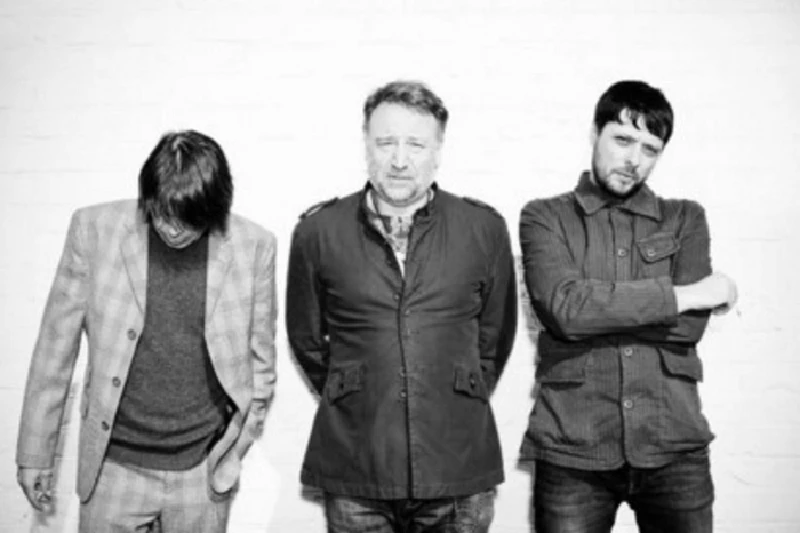
intro
Anthony Strutt speaks to New Order and Joy Division's Peter Hook and Mani from the Stone Roses and Primal Scream at a show in London about their bass project, Freebass, and some of their other groups
Freebass consisted initially of not just three of Manchester's finest bassists, but three of the finest bassists of all time. Those three musicians were Andy Rourke of the Smiths, Peter Hook of Joy Division and New Order and Mani of the Stone Roses and now Primal Scream. The band have recorded both an album, ‘It’s a Beautiful Life’ and an EP, ‘Two Worlds Collide’, both of which came out earlier this year and are currently only available as digital downloads. While Andy Rourke was initially involved in the project and contributed both to the EP and also some of the tracks on the album, he is now based in New York and has not been joining them for recent live dates. The group’s singer is Gary Briggs, who used to front another Manchester-based group Haven and who is now in the Strays. Pennyblackmusic met Peter Hook and Mani at a gig in London to get the lowdown on Freebass and also spoke to them about some of their other bands. PB: Has Freebass from its start always consisted of the three of you? PH: Yeah, it has always been Andy, Mani and me. M: But then three became two (Laughs). PB: I don't know if you know a band called Rothko, but they also use three basses. PH. There are actually quite a few that use three basses if you look around. I had never seen it before we started Freebass. It is always one of those things, isn’t it? When you come to do it, you find that there are loads of other fuckers doing it as well and then it becomes a race to see who gets some modicum of success before the others back down. I like to think we are winning (Laughs). PB: Freebass formed five years ago. Did you write from the very beginning or did you first of all spend a lot of time talking about the project and what you wanted to do with it? M: We started out and we went up to a mate of ours that had a studio out in the middle of nowhere and then started firing out ideas on a computer. Almost straightaway, we realised that we had something going on. We just didn't know what to expect. PH: We didn't have a clue, which was the nicest thing about it. We went in totally unprepared, had no idea what we were going to do and just sat there and played. The weird thing is the contradiction of there being three basses, which is what puzzles people, but, as soon as we started, Andy played guitar, Mani played Low and I played high and there you go. You have the recipe really. PB: How does the song writing in Freebass work? The album, for example, has songwriters on it. You got in, for example, Pete Wylie. PH. There have been two different versions of Freebass. What happened was we couldn't find a vocalist, however hard we tried, and Mani came up with the idea of asking our friends, which was a brilliant idea. We did ask our friends and a lot of our friends were busy, but we did manage to get a few to do it. As soon as they started to pitch in their ideas though, it didn't feel collective. It didn't feel whole. It felt like it was going in a different direction and it started to sound a bit odd to me. We always had the idea we wanted it to be a band and it didn't feel like a band, so we had a regroup, rethink, and Mani suggested Gary, who was in Haven (Whose first single was produced by Johnny Marr-AS) which had just bitten the dust. Luckily for us we tried Gary and it worked and we found the missing piece of the jigsaw, M: It made it a unit rather than a mish mash of different things. PB: There’s an EP and an album, which are both available on download. You have also apparently released an instrumental bversion of ‘It’s a Beautiful Life’ too. PH: When I was in New Order, we always used to do instrumentals of all the tracks, because you can hear things in the instrumentals that you don't in the vocal versions. I found it an interesting medium and I always tried to push New Order to do an instrumental album, but without success and now I have the power to do so (Laughs). One of the good things about the internet is you can put – and I mean this nicely – a lot of shit out there, because there is enough room to do so, whereas on a record in the old days, you couldn't do it and it didn't happen because of cost. The thing is putting up tracks on the internet doesn't cost anything, which is one of the beauties of it. You can indulge yourself. PB: So are your albums free on the internet? M: They are bound to be because the day you release anything then it will find its way onto Limewire. Music is always free. That's why you have to think outside of the box a bit more, because the primary earner of selling records isn't what it is all about anymore. That’s why we are getting out and doing this, which is why we started the band in the first place because our bands weren't up for doing gigs at the time. We were bored sitting at home. There is only so much of ‘Loose Women’ I can watch. PH:(Laughs) The downloads are for sale though. PB: You’re both bass players. Did the bass choose you or did you choose the bass? Mani: The bass chose me. I always listened to the bass line. Everyone else gets off on the vocal, melodies and the beauty of the harmony and guitar. Maybe I was a Jamaican, in a previous life. I was brought up on reggae and soul music, and even with punk rock it was the bass that grabbed me. My head pushes everything else out and I have always locked into that and the drums. It gets people off their arses. All the best bands have great bass and drums and it has less strings than a guitar. PH: I chose it and then bent it, moved it, twisted it around to fit me. I'm the complete opposite to Mani. I suppose that's why it works really because we are the complete opposite of each other. PB: You have both worked together before this though because, Peter, you produced the Stone Roses’ ‘Elephant Stone’ in 1988. Was that the first time you met? PH: No It was Gareth Evans (Stone Roses manager-AS) who introduced us, wasn’t it, Mani?. May he rest in peace. He was running a club at the time and was a weird character. Whenever we went in, he was always all over me and Barney (Bernard Sumner, Joy Division/New Order-Ed). He uses to creep up on us and leave us drinks and then we would knock them over. M: He was probably robbing your wallet. PH: So we got to know him well. Musicians and free booze are always a good pairing, He asked if I could produce the Roses because he wanted them to sound like New Order. And they didn't. M: No, we didn't. PH: I didn't want them too because they had a unique stamp of their own, but I got involved with that. It was funny because the guy was fucking mad. I did it for nothing and he came around my house three weeks later after I had done it and said, “I have got to give you some money, and I said that I didn't want any because we were mates. Them were the days and he said, “I’m going to give you some money, a thousand quid,” so he gave me a thousand pounds which was fucking brilliant. M: That was the thing with him. He was always generous with other people’s money (Laughs). PB: (To Peter) Outside of this band you’re a DJ and you have written a book on your experiences at the Hacienda (‘The Hacienda: How Not to Run a Club’, 2010). PH: Yeah. PB: Both the EP and album are on FAC51. Is that a label? PH: It is the Hacienda's website but it sells music. PB: So basically Factory is sort of back? PH: Not really. It just has this facility of selling music on the website. There are Hacienda compilations there as well. It was handy for us really, as we had somewhere to put the record out. If not no one would have heard it, which is one of the saddest things in the world. Established musicians like Mani and I can't get a record deal. PB: What are both your future plans? (To Peter) You’re doing ‘Unknown Pleasures’ live, aren’t you? PH: Yeah. What happened was I wanted to celebrate the thirtieth anniversary of Ian Curtis’s death, but a lot of plans fell through and I thought, “Fuck this. I’ll do something, I'm going to celebrate it,” So I did and it has been fantastic. PB: Any UK dates? PH: I’m not doing England. I don’t like England (Laughs). (Since this interview took place, it has been announced that the Light will be playing ‘Unknown Pleasures’ live at the 1,2,3,4 festival inn London on the 24th July). PB: And you’re doing ‘Screamadelica’ live? M: Yeah, it's weird, isn't it? Are we on a nostalgia trip? I hate to think so. PH: What do you do when you want to indulge yourself. You get out your old photographs and you go look at them. It is no different to that. PB: There have been two Joy Division films recently, ‘Control’ and the ‘Joy Division’ documentary. What did you think of ‘Control’? PH: ‘Control’ was very, very good. I expected Anton Corbijn who directed it to do it very well and he did. He knew us really well. The interesting thing there was that Rob Gretton (Joy Division’s manager’-AS) in’ Control’ was different from the Rob Gretton in ‘24 Hour Party People’ People ask me if it was the same person, but I expected Anton to do that, because he is a perfectionist. He created a much more realistic version of Rob. It wasn't called ‘Control’ for nothing either. He had his house on the line shooting that, and he knew he wanted to do it perfectly and truthfully. He wasn't bothered about the money. It was heartbreaking really. There was ‘24 Hour Party People’ which was like ‘Carry On at the Factory’ and then ‘Control’ which was film noir. It was weird because I watched it all and I never really realised at the time it was in black and white. It was only when someone told me it was in black and white that it really hit me, but it suited it perfectly. PB: The ‘Joy Division’ documentary came out a few months after ‘Control’. Did you like that? PH: That was done by New Order's US Manager, whom came to us just after’ Joy Division’, and he wanted to do New Order’s version of events because he felt that the band never got to talk about what they were doing either. To me the documentary and ‘Control’ go so well together, because with ‘Control’ you see not a romantic version of it, but a stylish version of it. And then with the documentary you hear the real thing. The thing for me was I had never heard Bernard or Stephen (Morris, Joy Division drummer-AS) ever talk about Joy Division. We had never spoken about it and to hear them talk about it was the first time. I never knew how they felt, because we threw ourselves into New Order and got on with it. It seemed at the same time the best thing we could do.To go back up that hill it was a very strange thing for me, but at the same time it was a really amazing experience. PB: Thank you.
Picture Gallery:-
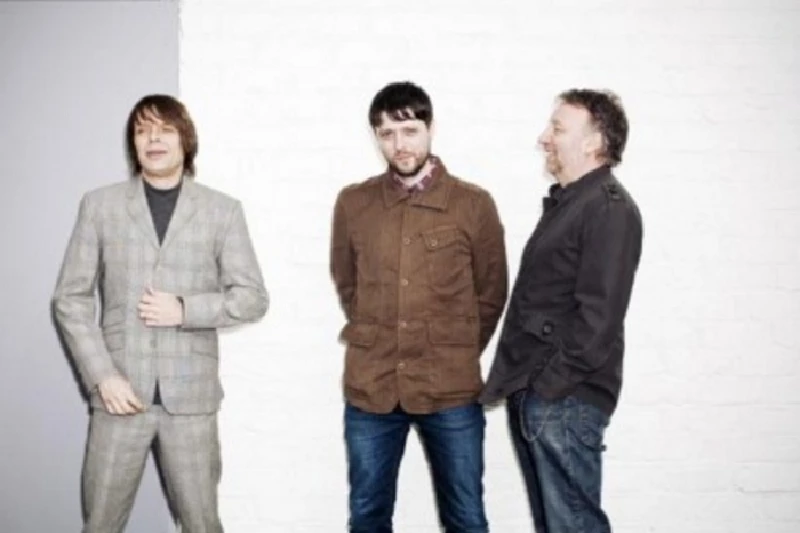
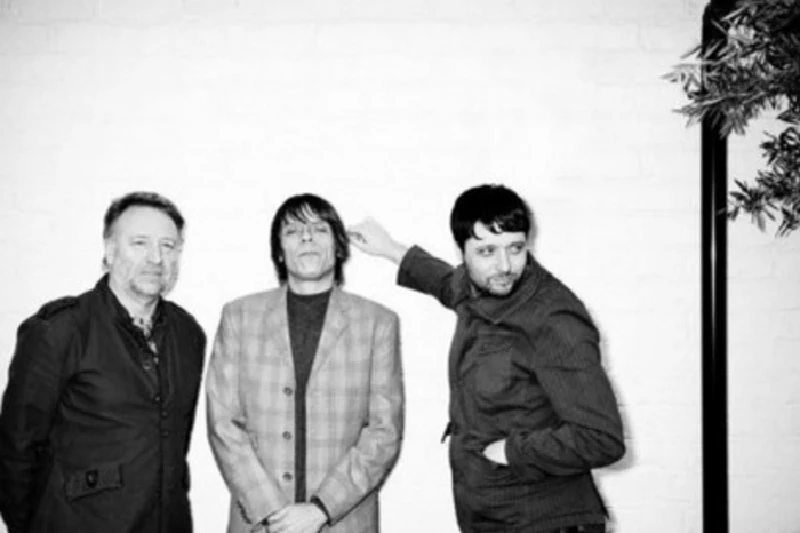
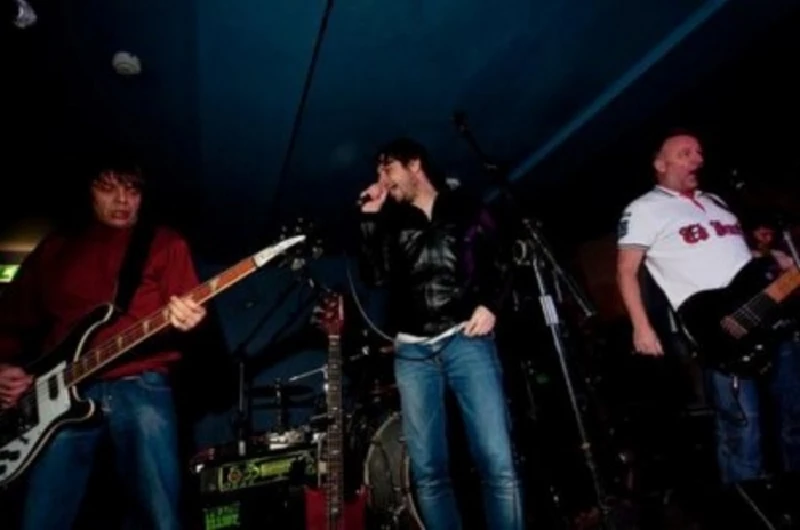
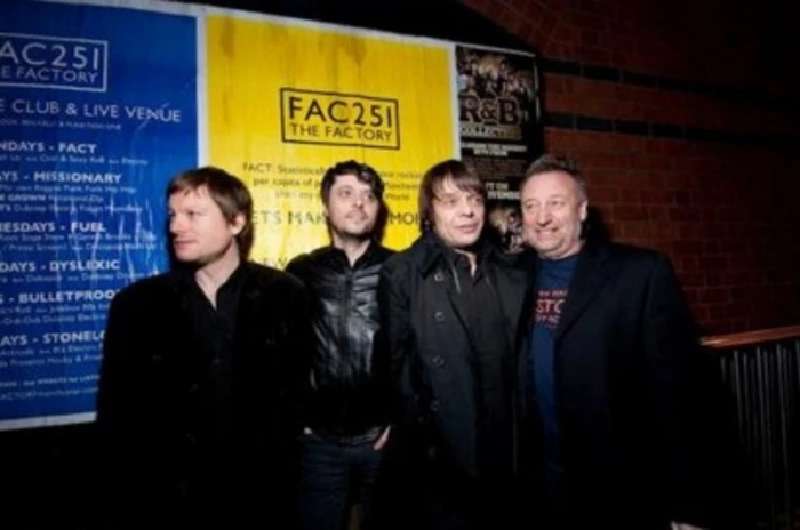
most viewed articles
current edition
Carl Ewens - David Bowie 1964 to 1982 On Track: Every Album, Every SongArmory Show - Interview with Richard Jobson
John McKay - Interview
Colin Blunstone - Thalia Hall, Chicago, 16/7/2025
Billie Eilish - O2 Arena, London, 10/7/2025
Bathers - Photoscapes 1
Visor Fest - Valencia, Spain, 26/9/2025...27/9/2025
Loft - Interview
Robert Forster - Interview
Sir Tim Rice - Interview
previous editions
Manic Street Preachers - (Gig of a Lifetime) Millennium Stadium, Cardiff, December 1999Heavenly - P.U.N.K. Girl EP
Beautiful South - Ten Songs That Made Me Love...
Oasis - Oasis, Earl's Court, London, 1995
Peter Perrett - In Dreams Begin Responsibilities Interview Part One
Prolapse - Interview
Boomtown Rats - Ten Songs That Made Me Love....
Coldplay - Wembley Arena. London, 16/8/2022
Pixies - Ten Songs That Made Me Love...
Trudie Myerscough-Harris - Interview
most viewed reviews
current edition
Davey Woodward - Mumbo in the JumboSick Man of Europe - The Sick Man of Europe
Lucy Spraggan - Other Sides of the Moon
Phew, Erika Kobayashi,, Dieter Moebius - Radium Girls
Amy Macdonald - Is This What You've Been Waiting For?
Bush - I Beat Loneliness
Suzanne Vega - Flying With Angels
Alice Cooper - The Revenge of Alice Cooper
Cynthia Erivo - I Forgive You
Blueboy - 2
Pennyblackmusic Regular Contributors
Adrian Janes
Amanda J. Window
Andrew Twambley
Anthony Dhanendran
Benjamin Howarth
Cila Warncke
Daniel Cressey
Darren Aston
Dastardly
Dave Goodwin
Denzil Watson
Dominic B. Simpson
Eoghan Lyng
Fiona Hutchings
Harry Sherriff
Helen Tipping
Jamie Rowland
John Clarkson
Julie Cruickshank
Kimberly Bright
Lisa Torem
Maarten Schiethart